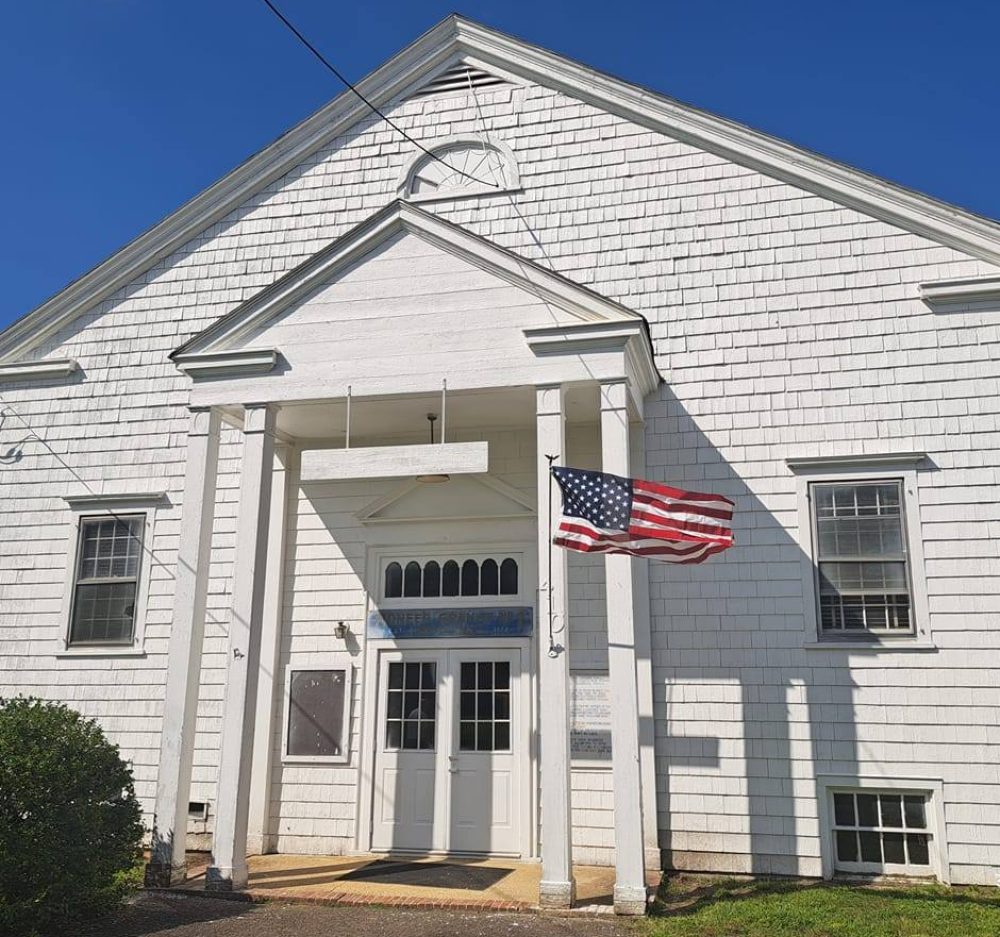The Grange was organized at Elk River, Minnesota, at the farm of Oliver Hudson Kelley. Mr. Kelley was an activist in the cause of farm prices, rural living conditions, and the use of education, modern inventions and improved methods in agricultural production.
Calling together six prominent men from various disciplines, Kelley designed a fraternal organization which would be the first of its kind. In the Grange both men and women would hold office, and their children would attend with them and take part in learning, the service and the fun which the Grange would offer. Kelley and the other Founders registered the Grange as a national fraternity in Washington, D.C., in 1867.
Four years later a Grange was organized in New Brunswick., by eighteen persons. Homestead Grange, as it was known, surrendered its charter in 1881, leaving Pioneer Grange the oldest in State, with its charter issued December 28, 1971.
To the best of our knowledge the first meeting of a group to organize Pioneer Grange was held in Jamesburg. Later the organization met at Monroe Hall in Prospect Plains, with 24 members. John E. Stultz was the first master.
Subsequent meetings were held in the Odd Fellows Hall in Cranbury, with membership growing until it reached 222 in 1909. It was in 1917 that J.W. Errickson suggested meetings be held in Dayton. This request was complied with and sessions took place in members’ homes, in a hall over Mr. Errickson’s store and in the school.
The Grange observed its Golden Anniversary on January 24, 1922, at a ceremony attended by 400 persons in the Dayton Presbyterian Church. In 1940 construction began on the present hall, and the dedication ceremony took place February 28, 1941. That night we had a massive snow storm. Some roads were almost impassable, and many of are members stayed here at the Grange Hall all night!
Our 75th Anniversary was celebrated in 1947 after World War 11, with over 500 in attendance! Our 100th Anniversary was celebrated in April 1972 with over 350 in attending. Dignitaries representing the Grange through State level, State Police, Secretary of Agriculture, and our local Mayor were in attendance.
As the first and oldest Grange in New Jersey in continuous service, Pioneer Grange has shared in many accomplishments of both local and state-wide interest. It was begun by farm families concerned with improving farm market prospects and the improvement of rural life. Education, advanced agricultural technology, such national programs as the Postal Departments Rural Free Delivery service and the Rural Electrification Administration were fostered by Grange leaders in the late Nineteenth and early Twentieth centuries.
During the 1920s the New Jersey State Grange Organization was instrumental in the establishment of the New Jersey State Police. More recently, Professor Wabun Krueger of New Jersey’s College of Agriculture and a member of Pioneer Grange, gave his extensive collection of early farm equipment and machinery to Rutgers University. Through an overture originating in Pioneer Grange, and aided by Mercer County Pomona Legislative Chairman Robert Simpkins, the New Jersey State Grange voted to support the proposal for a State Museum of Agriculture. The Governor and State Legislature concurred, and the Museum of Agriculture at cook college became a reality. Beginning with Dr. Krueger’s collection, it has become one of the finest institutions of its kind. (The Museum no longer exists).
Pioneer Grange traditionally reflected the rural and agricultural communities in which it was located. But now most of the farms in Central New Jersey have disappeared, and with them many of the farm families who once made up the membership of our Granges. Accordingly, Grange members now focus on many non-agricultural issues, such as education, improved roads, safety, deaf awareness and services for the deaf and disadvantaged, and the continuation of historic crafts and farming pursuits. The goal of the Grange is to continue to promote values of home, community, and agriculture in the new Millennium.
Lorraine Underwood, Historian
This is the history page.
